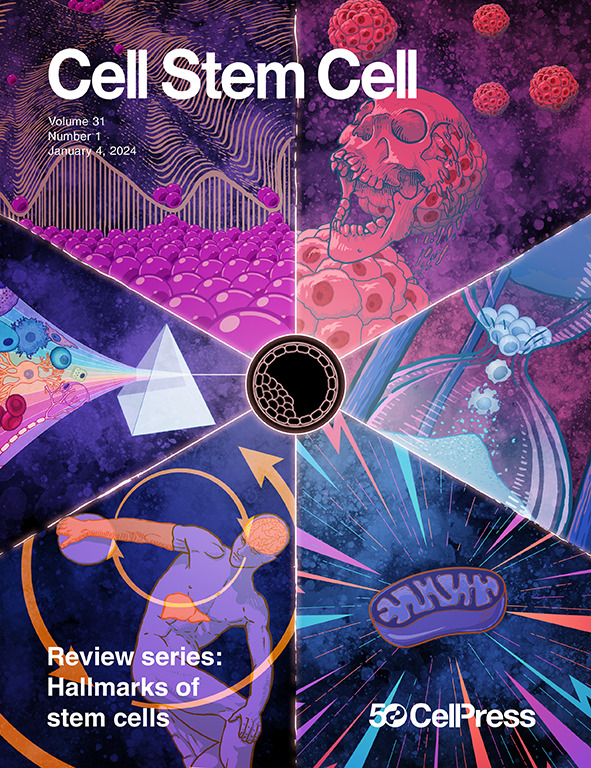胰腺癌类器官生物库将多组学特征与他汀类药物联合治疗的治疗反应和临床评估联系起来
IF 20.4
1区 医学
Q1 CELL & TISSUE ENGINEERING
引用次数: 0
摘要
化疗仍然是胰腺导管腺癌(PDAC)的主要治疗方法,但大多数患者最终产生耐药性。在这里,我们建立了260个胰腺癌类器官系,随后进行了广泛的多组学分析和治疗敏感性评估。综合分析发现了6个新的编码和35个非编码驱动候选程序。我们发现了2794个与药物敏感性相关的多组学特征和322个与辐射敏感性相关的特征。药物基因组学分析显示,类化学耐药器官在蛋白质糖基化和胆固醇代谢途径中表现出富集。值得注意的是,他汀类药物有效靶向耐药PDAC类器官。他汀类药物治疗可减弱PDAC类器官中的蛋白糖基化、胆固醇水平和上皮-间质转化(EMT)特征。我们开展了一项单中心、单臂、2期临床试验(NCT06241352),联合阿托伐他汀与化疗治疗晚期胰腺癌患者。在37例患者中,26例(70.3%)显示出反应,肿瘤标志物下降超过20%,表明在这一具有挑战性的患者群体中有持久的反应和潜在的临床益处。本文章由计算机程序翻译,如有差异,请以英文原文为准。

A pancreatic cancer organoid biobank links multi-omics signatures to therapeutic response and clinical evaluation of statin combination therapy
Chemotherapy remains the primary treatment for pancreatic ductal adenocarcinoma (PDAC), but most patients ultimately develop resistance. Here, we established 260 pancreatic cancer organoid lines, followed by extensive multi-omics profiling and therapeutic sensitivity assessments. Integrated analyses uncovered 6 novel coding and 35 noncoding driver candidates. We discovered 2,794 multi-omics features associated with drug sensitivity and 322 features linked to radiation sensitivity. Pharmacogenomic analyses revealed that chemoresistant organoids exhibited enrichment in protein glycosylation and cholesterol metabolism pathways. Notably, statins effectively targeted chemoresistant PDAC organoids. Statin treatment attenuated protein glycosylation, cholesterol levels, and the epithelial-to-mesenchymal transition (EMT) signature in PDAC organoids. We conducted a single-center, single-arm, phase 2 clinical trial (NCT06241352) combining atorvastatin with chemotherapy in patients with advanced pancreatic cancer. Among 37 patients, 26 (70.3%) demonstrated a response, with tumor markers decreasing by more than 20%, suggesting durable responses and potential clinical benefits in this challenging patient population.
求助全文
通过发布文献求助,成功后即可免费获取论文全文。
去求助
来源期刊

Cell stem cell
生物-细胞生物学
CiteScore
37.10
自引率
2.50%
发文量
151
审稿时长
42 days
期刊介绍:
Cell Stem Cell is a comprehensive journal covering the entire spectrum of stem cell biology. It encompasses various topics, including embryonic stem cells, pluripotency, germline stem cells, tissue-specific stem cells, differentiation, epigenetics, genomics, cancer stem cells, stem cell niches, disease models, nuclear transfer technology, bioengineering, drug discovery, in vivo imaging, therapeutic applications, regenerative medicine, clinical insights, research policies, ethical considerations, and technical innovations. The journal welcomes studies from any model system providing insights into stem cell biology, with a focus on human stem cells. It publishes research reports of significant importance, along with review and analysis articles covering diverse aspects of stem cell research.
 求助内容:
求助内容: 应助结果提醒方式:
应助结果提醒方式:


